Annual Report 2022
Our mission is simple: effective humanitarian aid and sustainable development programs, without discrimination, based on the Islamic principles of human dignity, self-reliance, and social justice.
Since 1984, IDRF has implemented relief and development projects across territories in South and Southeast Asia, Africa, the Americas, Eastern Europe and the Middle East. This is what we did in 2022.
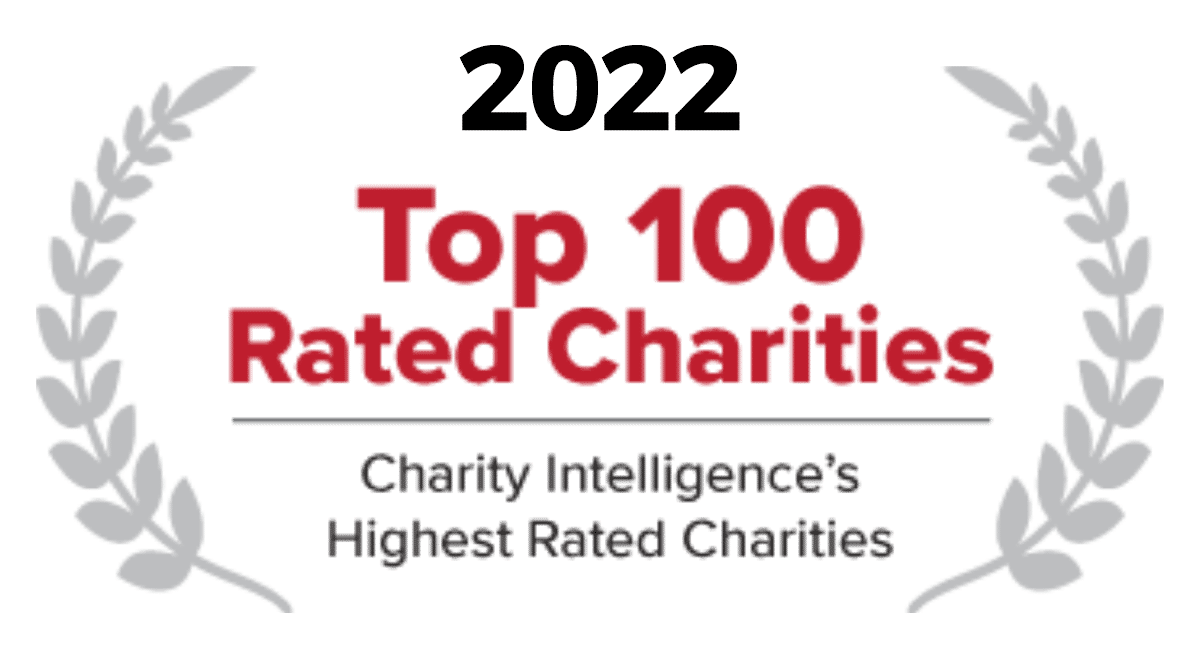
Message from our Board of Directors & CEO
As we approach the third year of the COVID-19 global health pandemic, the challenges continue to affect the most disadvantaged communities worldwide.
Despite all of that, the generosity of our donors did not fade; it grew. Through your support, we successfully implemented 106 projects in 29 countries to provide access to clean water, quality education, health care, nutritious food, and economic development for 1,894,093 people.
As you can conclude from the results and details of the projects in this annual report, supporters like you have helped us deliver meaningful programming that has made a tremendous, positive impact on the lives of so many beneficiaries. A heartfelt thank you from IDRF to all of our supporters for the critical role you play in our ability to deliver these programs. Together we are people helping people.
However, our work continues. With ongoing projects and emergencies worldwide, it becomes even more critical to continue supporting and building resilient and sustainable communities. We look forward to fulfilling our ‘Brighter Future’ mission, serving more people and amplifying our impact by providing sustainable and long-term solutions in each project we implement.
We are so honoured that you have chosen to support IDRF. We cannot do this vital work without your continued trust and support. Thank you.
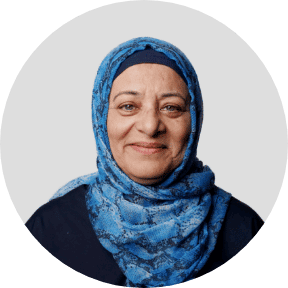
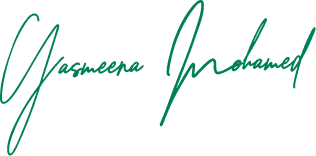
Co-Chair
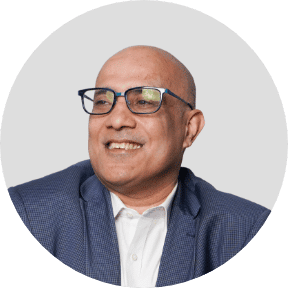
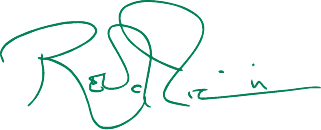
Co-Chair
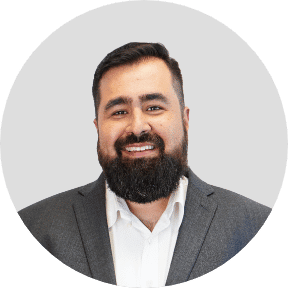
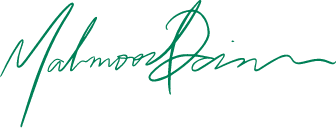
CEO


Co-Chair


Co-Chair


CEO
Board of Directors
Vice Chair
Marzia Habib H.
Vice Chair
Treasurer
Nurhan A.
General Secretary
Board Member
Winston K.
Board Member
Board Member
Fatima L.
Board Member
Board Member
Seema R.
Board Member
Muhammad M.
Vice Chair
Marzia Habib H.
Vice Chair
Mukhtar R.
Treasurer
Nurhan A.
General Secretary
Zeib J.
Board Member
Winston K.
Board Member
Muzna Ahmad
Board Member
Fatima Laher
Board Member
Jawaid Mirza
Board Member
Seema R.
Board Member
Together, we’re establishing sustainable solutions that empower people and create brighter futures for generations to come.
We are people helping people.
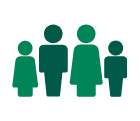
people supported
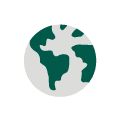
active countries

people received food assistance through food parcels and vouchers.

people supported with emergency response

people received clean water, hygiene and sanitation services.

people received health care services

people received educational support

people received support to start businesses and receive training
Where you helped make an impact
At IDRF, our relief efforts are global and we work with caring people, quality partners, and community leaders all around the world who share the conviction that everyone should have the resources and opportunities to be self-sufficient. We have supported long-term development and emergency programs in 29 countries around the world, implementing 108 different projects.
Click on the highlighted countries to learn more about our work

At IDRF, our programs focus on addressing current challenges while investing in the future of people and communities. We incorporate these practices through our five-year strategy of “A Brighter Future”.
For each sector, our programming reflects the needs that arise to deliver long-term sustainable solutions. At IDRF, our programs actively address and work towards the UN’s Sustainable Development Goals so that we can create a brighter future for those who need it most.
Our Guiding Values & Approach
IDRF believes that the best way to approach community development is to partner with local experts, international NGOs, grassroots organizations, and to leverage our community’s resources to not only ensure maximum impact but a ripple effect of sustainability.
Our projects are initiated by our local partners who understand the challenges and opportunities that exist where they live and work. This approach reflects in our core and guiding values to make IDRF a people helping people organization.
Emergency Responses
When natural disasters strike or conflicts arise, IDRF aims to be amongst the first on the ground providing essential relief and aid. For the last 38 years, we have responded to emergencies like; floods, droughts, earthquakes, political and economic crises, and more.
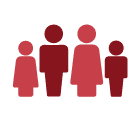
people supported with emergency response

%
men supported
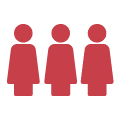
%
women supported
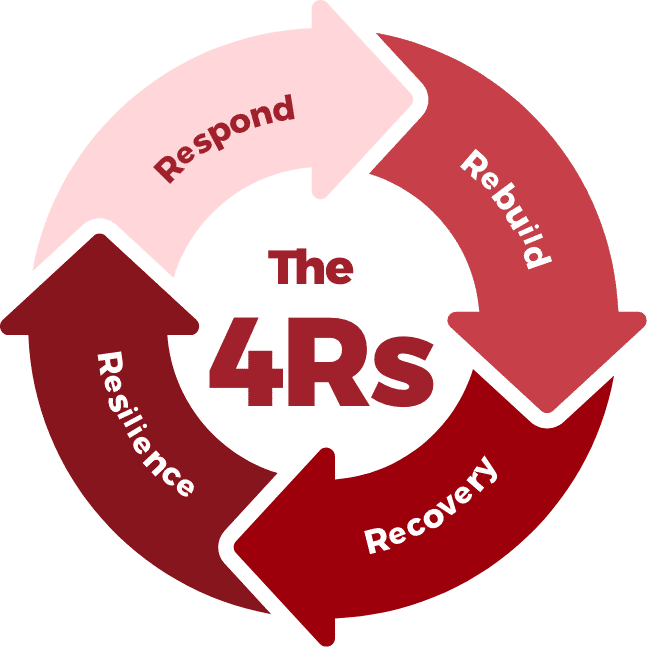
Our long-term, ‘Brighter Future’ strategy builds upon emergency relief by providing long-term sustainable solutions to mitigate any potential disaster or crises in the future.
We do this by prioritizing sustainability through our Respond, Rebuild, Recover, Resilience implementation process during an emergency response:
1.
Respond
2.
Rebuild
3.
Recover
4.
Resilience

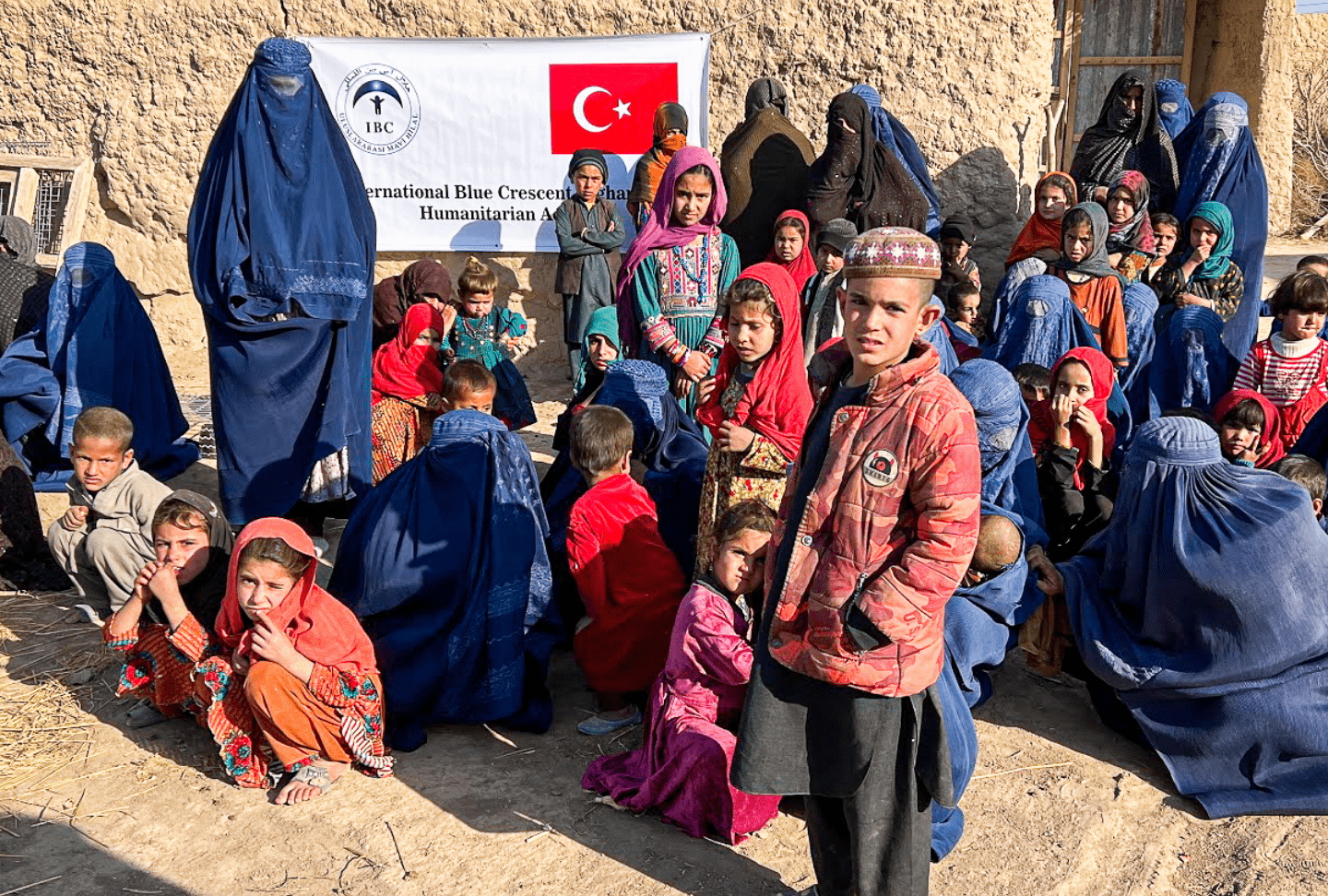
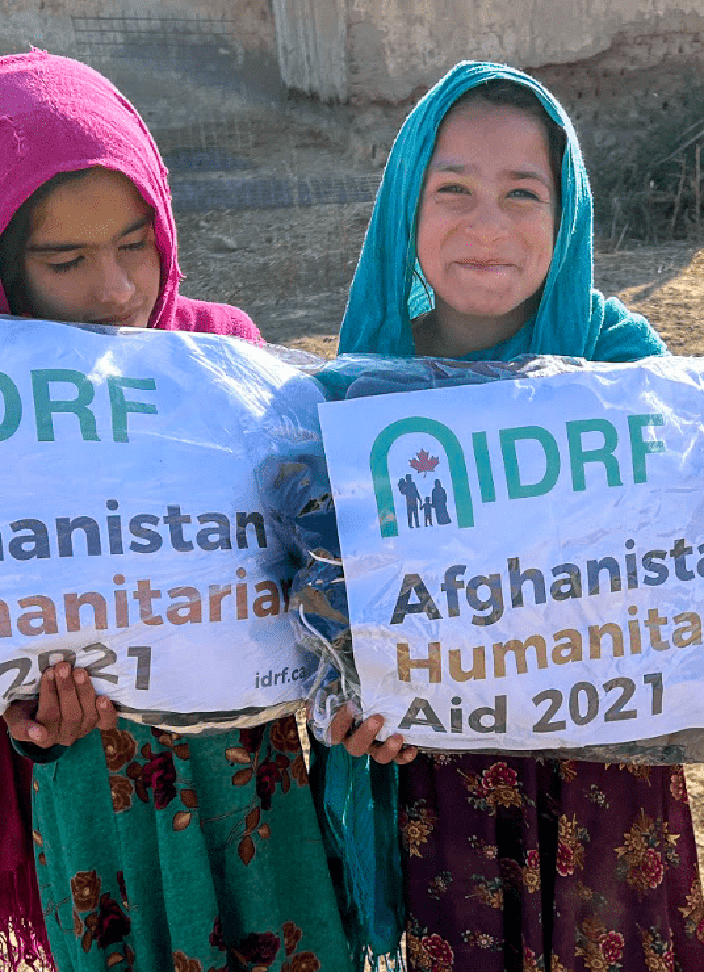
Afghanistan
This year Afghanistan experienced major political, humanitarian, and economic crises. According to United Nations projections, by the end of 2022, a staggering 97% of Afghans will be living in poverty.
people supported in Afghanistan

men supported
women supported
Horn of Africa
IDRF responded to this by providing food packages and cash assistance to the most vulnerable communities across the Horn of Africa.
Palestine
IDRF has responded by providing emergency food aid, medical equipment, medicine, and fuel for ambulances in Gaza and Jerusalem.

people supported in Horn of Africa region

families supported

people supported in Palestine

families supported
Horn of Africa
IDRF responded to this by providing food packages and cash assistance to the most vulnerable communities across the Horn of Africa.

people supported in Horn of Africa region

families supported
Palestine
IDRF has responded by providing emergency food aid, medical equipment, medicine, and fuel for ambulances in Gaza and Jerusalem.

people supported in Palestine

families supported
The Future of Food Security
Access to food and nutrition is a basic human right. According to the World Food Program, a total of 50 million people in 45 countries are on the edge of famine.
A community thrives when everyone has access to sufficient, safe, and nutritious food. Our ‘Brighter Future’ strategy works towards long-term sustainable food programs. These programs enhance our food distribution processes and increase economic and agricultural value.
In 2022, we responded to the growing food insecurity by providing food packages and food vouchers to families in 22 countries.
This year, 611,466 people received food assistance through IDRF’s food security programs.
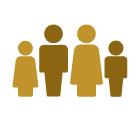
people supported with food security

%
men supported

%
women supported
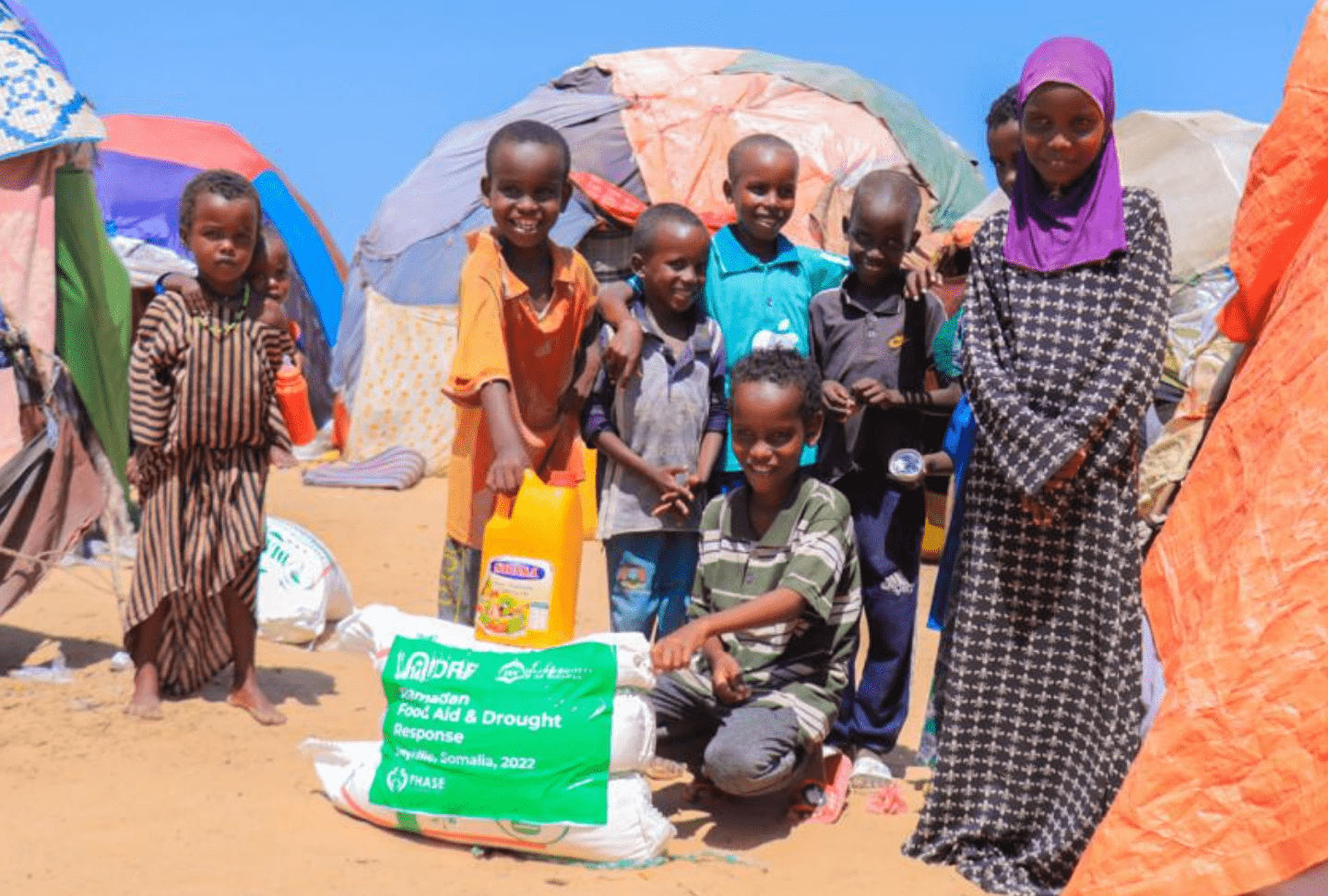
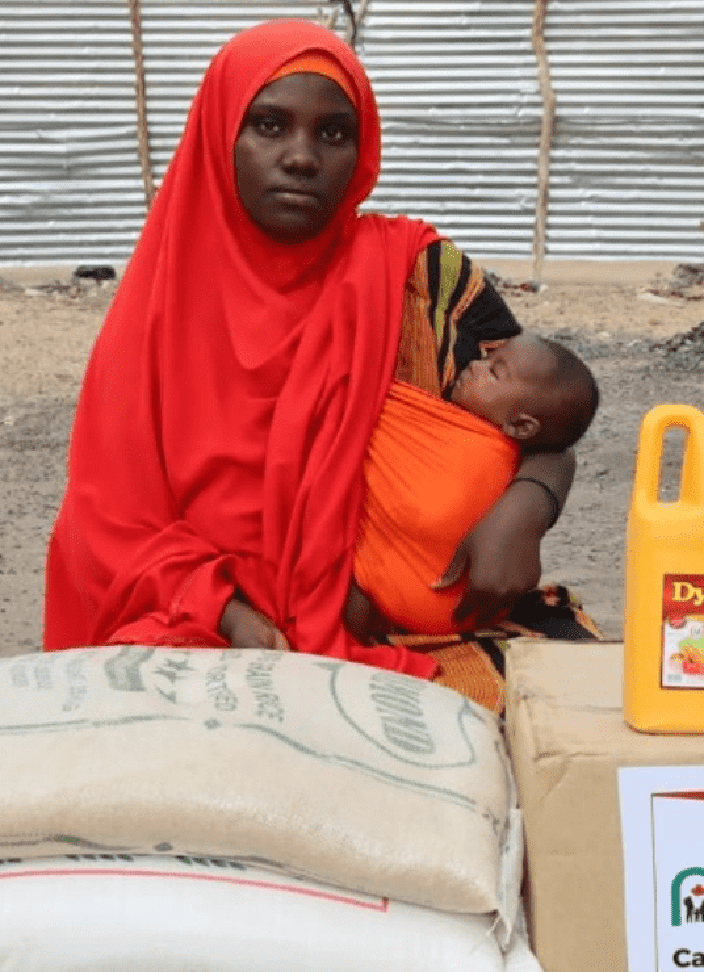
Somalia
According to UNICEF, by the end of 2022, 1.5 million children in Somalia will potentially be facing deadly forms of malnutrition.
IDRF has responded by providing emergency food aid to the most conflict and drought affected areas of Dhuusamareeb district in Galgaduud Region.
This past year, we provided food packages to 57,557 people

people supported in Somalia

men supported

women supported
Sahel Africa
At IDRF, we work in Chad, Niger, Burkina Faso, and Mali in the Sahel region and provide emergency food aid boxes continuously throughout the year.
This past year, we have provided food packages to 37,600 people.
Turkey
This year, we launched food security programs to provide food packages for Uyghur Refugees and daily hot meals for Syrian Refugees in Kilis and Istanbul.
This past year, IDRF provided support to 23,069 Uyghur and Syrian Refugees.

people supported in the Sahel Region

families supported

people supported in Turkey

families supported
Sahel Africa
At IDRF, we work in Chad, Niger, Burkina Faso, and Mali in the Sahel region and provide emergency food aid boxes continuously throughout the year.
This past year, we have provided food packages to 37,600 people.

people supported in the Sahel Region

families supported
Turkey
This year, we launched food security programs to provide food packages for Uyghur Refugees and daily hot meals for Syrian Refugees in Kilis and Istanbul.
This past year, IDRF provided support to 23,069 Uyghur and Syrian Refugees.

people supported in Turkey

families supported
Water is Life
In the last year, four billion people – almost two thirds of the world’s population, experienced severe water scarcity.
The lack of accessibility to water disproportionately affects women and girls who are often responsible for traveling long distances to collect water.
At IDRF, we recognize that providing safe access to water can make all the difference to a community. In our mission to create a ‘Brighter Future’, we aim to build and rehabilitate water infrastructures, provide WASH education workshops, distribute hygiene and sanitation products, and look to improve technology around the efficiency and sustainability of our water projects.
During times of conflict, we implement water trucking to provide immediate access to clean drinking water. Our water programs offer holistic support by providing clean water for families, schools, healthcare facilities, and agriculture.
This year, we provided 626,864 people with access to clean water and hygiene-related services.
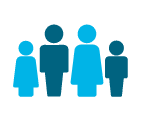
people supported with WASH
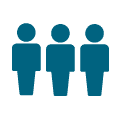
%
men supported

%
women supported
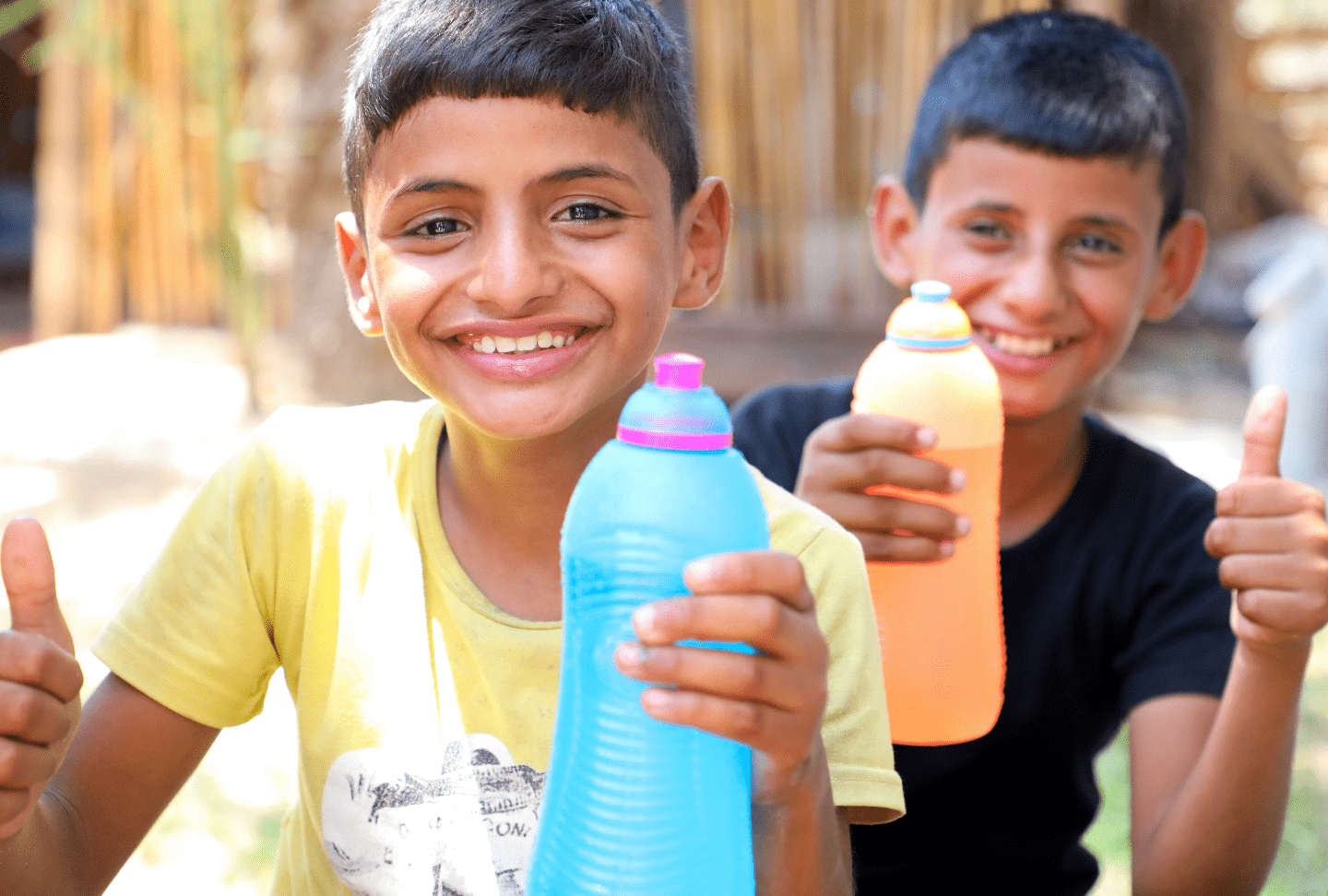
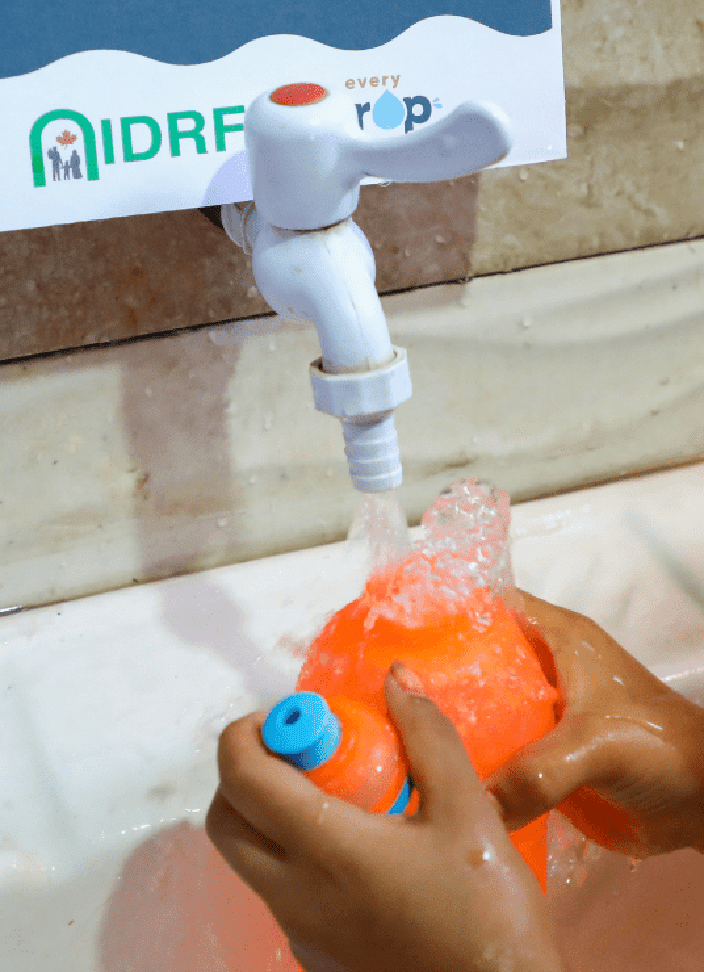
Gaza
Over 97% of water extracted from aquifers in Gaza are unfit for human consumption.
Through IDRF’s Water Trucking Program, 27 schools across Gaza were provided access to clean drinking water, giving clean drinking water to 16,200 people.

people supported

men supported

women supported
Yemen
Through IDRF’s Water-Trucking program, 21,777 people have been given access to clean water.
Kenya
IDRF prioritizes sustainable practices for the water wells that we build by training community leaders. This is done so that they can continue to provide maintenance of the well and ensure that the water quality remains safe for consumption.
Through IDRF’s Every Drop Counts program, 23 shallow water wells have been built and 116,675 people have been supported.

people supported in Yemen
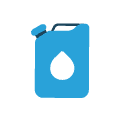
litres of water delivered

people supported in Kenya
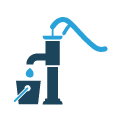
shallow water wells built
Yemen
Through IDRF’s Water-Trucking program, 21,777 people have been given access to clean water.

people supported in Yemen

litres of water delivered
Kenya
IDRF prioritizes sustainable practices for the water wells that we build by training community leaders. This is done so that they can continue to provide maintenance of the well and ensure that the water quality remains safe for consumption.
Through IDRF’s Every Drop Counts program, 23 shallow water wells have been built and 116,675 people have been supported.

people supported in Kenya

shallow water wells built
Better Health, Better Futures
We believe that all people deserve access to high-quality health care. Whether someone contracts a disease, falls sick, or gets injured, their social and economic conditions should never act as a barrier to medical care.
This year, 151,712 people received health care services through IDRF programs.

people supported with health care

%
men supported
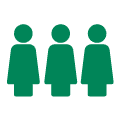
%
women supported
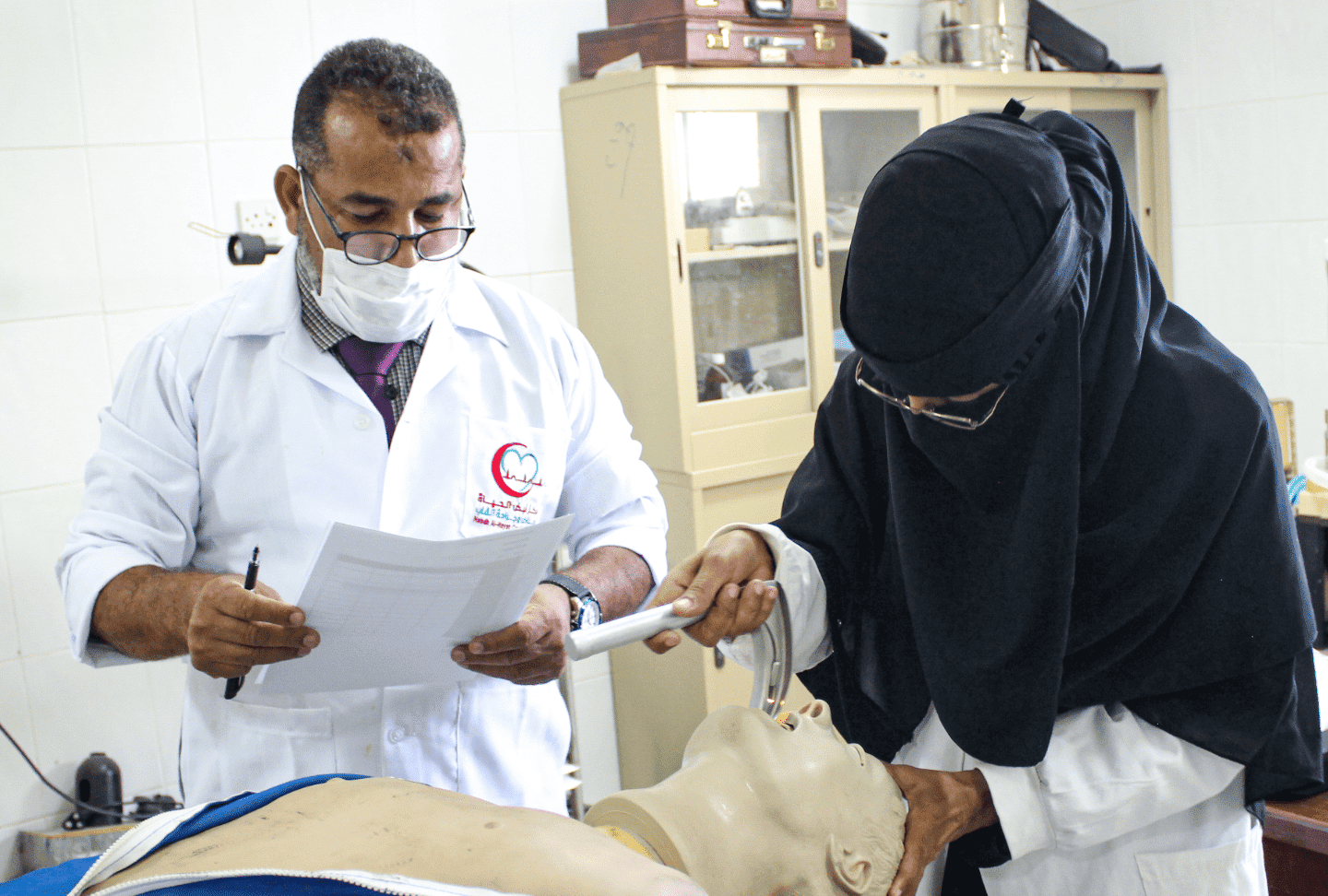
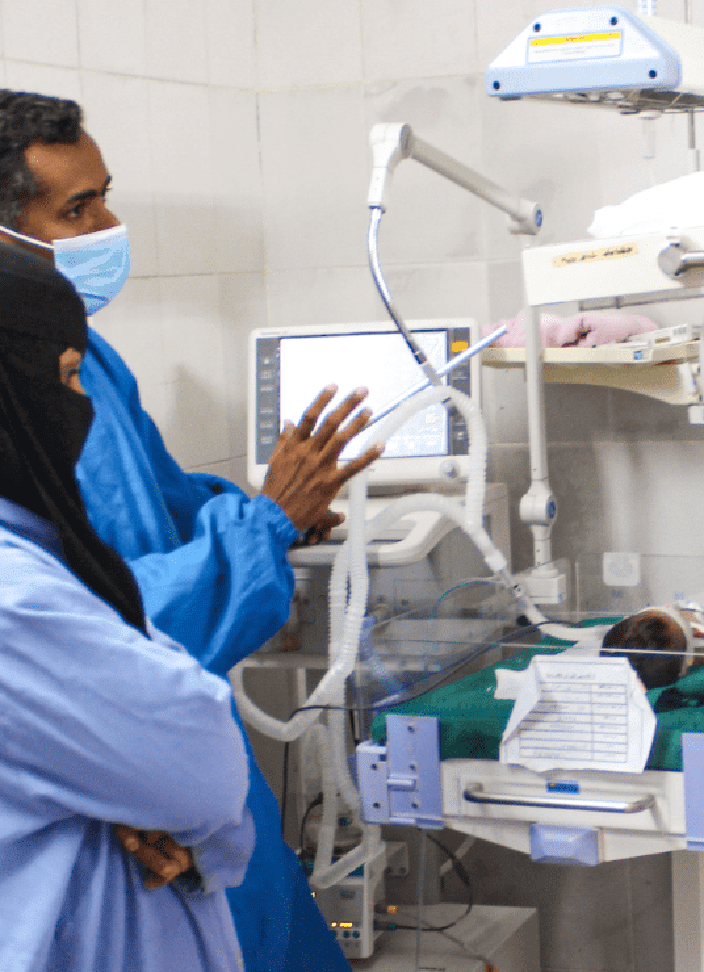
Yemen
Yemen experiences a high number of deaths resulting from acute and chronic respiratory infections.
In 2022, IDRF initiated a program to train 100 nurses as respiratory therapists. The program targeted Mukalla City. Before IDRF’s intervention, Mukalla City didn’t have a single training program for health professionals looking to specialize in respiratory care. Our program trains nurses to be specialized Respiratory therapists certified by Yemen’s Ministry of Health.

women trained as respiratory therapists

men trained as respiratory therapists

lecture hours completed
Guyana
To alleviate both the physical and financial hardships associated with kidney failure and dialysis care, IDRF funds the purchase of hemodialysis filters and medication for hospitals in Georgetown. With this support, those hospitals have fewer costs allocated to expensive equipment and can thus offer subsidized, affordable care for those experiencing kidney failure and ultimately improving their chances of survival.
In 2022, this project subsidized healthcare costs for 93 individuals.
Gaza
IDRF alongside our local partners on the ground implemented the installation of an oxygen plant to support the Al-Shifaa hospital and provide life-saving supplies to the Palestinian people.
In 2022, 10,000 patients were able to benefit from this project, every month.

people received subsidized healthcare costs
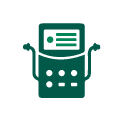
dialysis treatments funded

patients supported each month

people provided with medical aid and fuel for ambulance
Guyana
To alleviate both the physical and financial hardships associated with kidney failure and dialysis care, IDRF funds the purchase of hemodialysis filters and medication for hospitals in Georgetown. With this support, those hospitals have fewer costs allocated to expensive equipment and can thus offer subsidized, affordable care for those experiencing kidney failure and ultimately improving their chances of survival.
In 2022, this project subsidized healthcare costs for 93 individuals.

people received subsidized healthcare costs

dialysis treatments funded
Gaza
IDRF alongside our local partners on the ground implemented the installation of an oxygen plant to support the Al-Shifaa hospital and provide life-saving supplies to the Palestinian people.
In 2022, 10,000 patients were able to benefit from this project, every month.

patients supported each month

people provided with medical aid and fuel for ambulance
Education is the Future
We know that education is the key to removing barriers to success and opening the doors of opportunity. Across the world, 72 million children do not attend primary school, and a staggering 759 million adults are illiterate.
This year, 46,822 received educational support through IDRF.
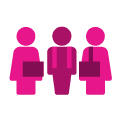
students received education support
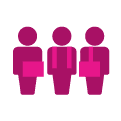
%
men supported
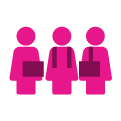
%
women supported
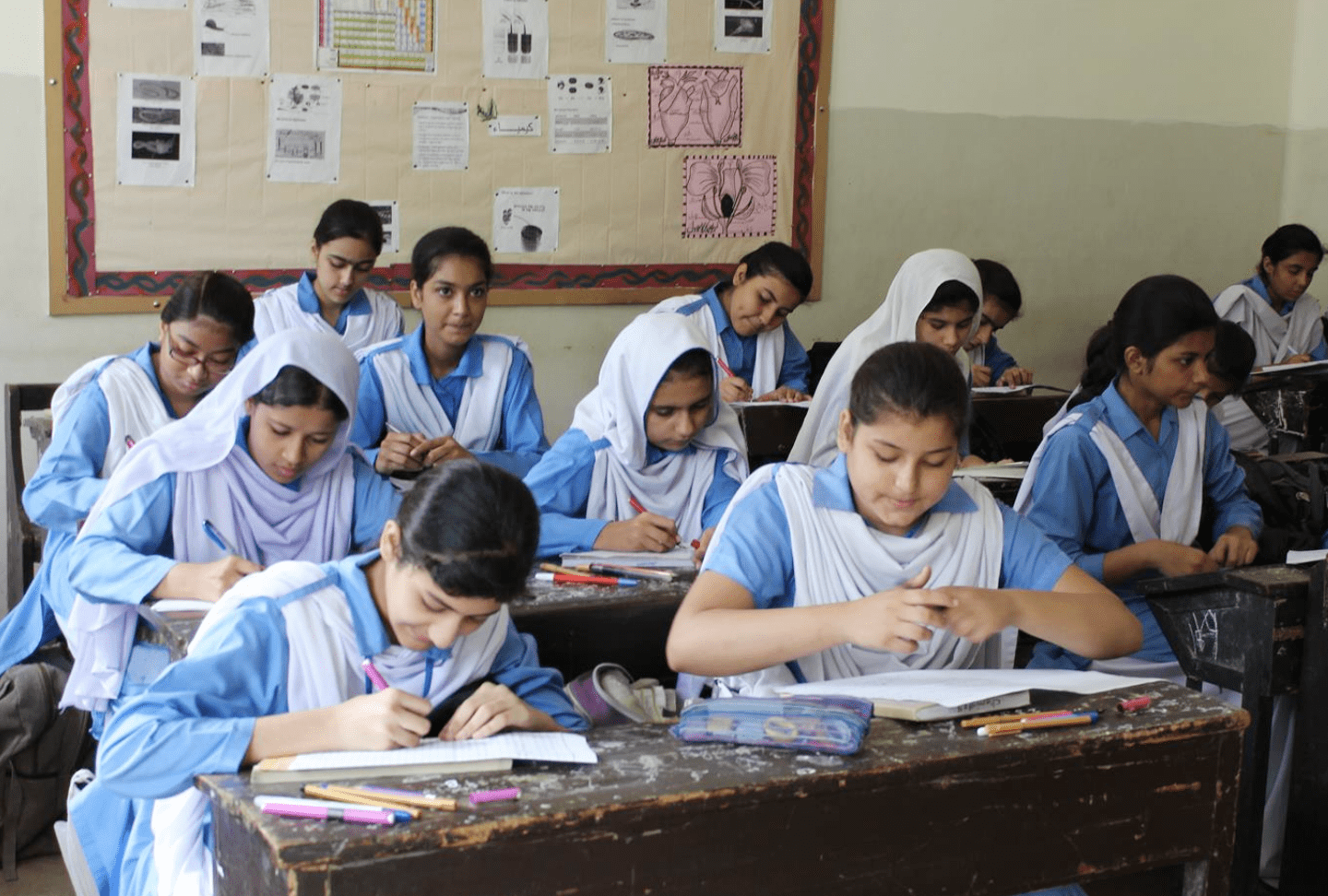
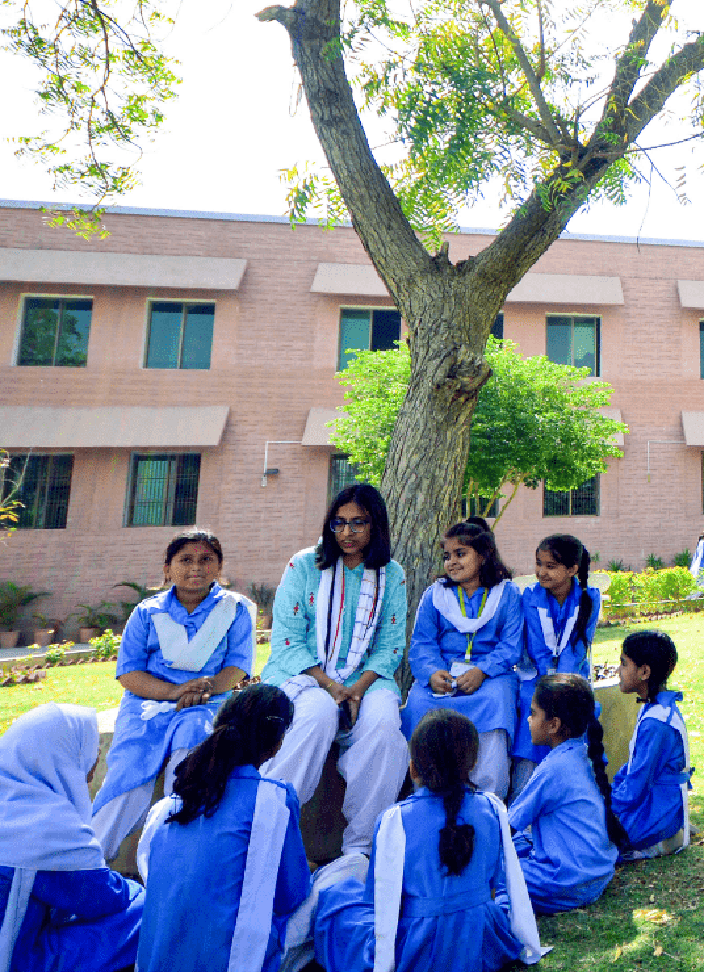
Pakistan
In Pakistan, an estimated 22.5 million children are out of school, of which the majority are girls.
Through this program, 244 students received nutritious breakfast daily, 839 students were supported with free education, 105 staff were supported with educational resources and supplementary training.

students were supported

staff were supported

%
women were supported
Palestine
As this is a permanent IDRF space, the impact of the program is continuous. This past year, 13,800 students were supported.
India
Through this program, 9,110 students received access to education
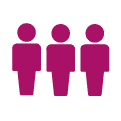
men were supported
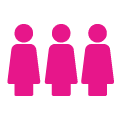
women were supported

women were supported

men were supported
Palestine
As this is a permanent IDRF space, the impact of the program is continuous. This past year, 13,800 students were supported.

men were supported

women were supported
India
Through this program, 9,110 students received access to education

women were supported

men were supported
Training for their Future
According to the UN approximately 255 million full-time jobs were lost during worldwide lockdowns. While the global economy is slowly recovering, there are still large portions of vulnerable populations that have been forgotten and continue to be marginalized in the recovery, and in accessing economic opportunities.
This year, 4,618 people received training and support to start businesses and pursue economic opportunities.
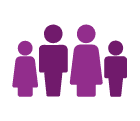
people received training and support

%
men supported
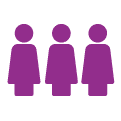
%
women supported
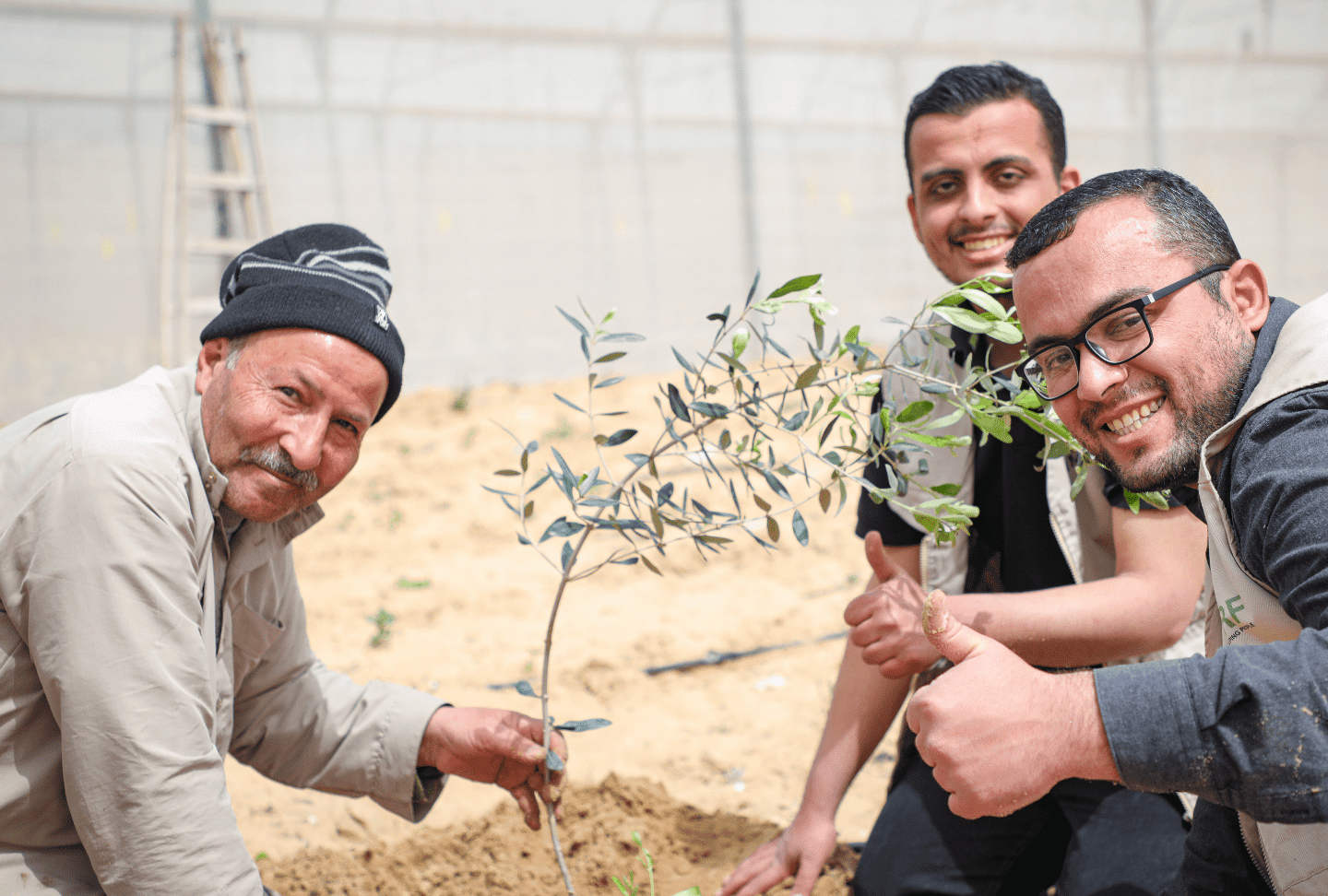
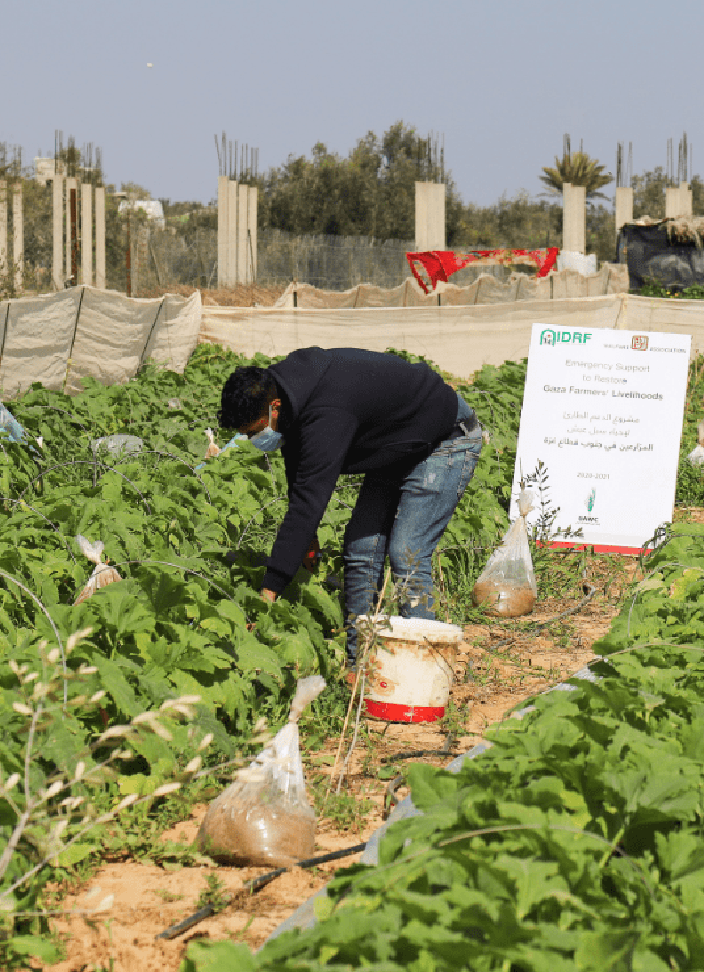
Palestine
Agriculture is one of the most critical sectors for the Palestinian economy as it contributes significantly to income, exports, and food security.
Each year, IDRF purchases the harvests from the farmers participating in this program. The produce is then distributed to vulnerable families during the month of Ramadan.

farmers supported

dunnums of land rehabilitated
greenhouses built
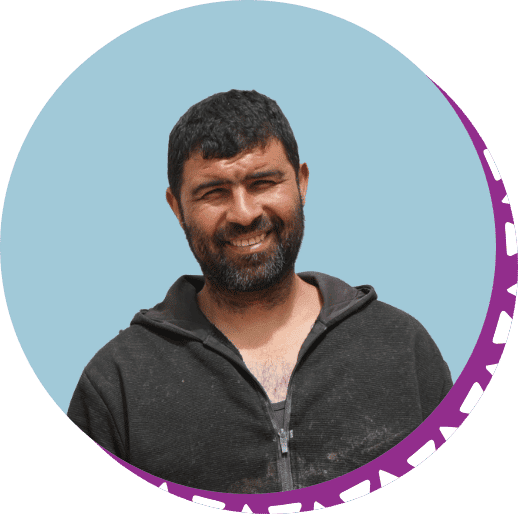
The death of my father was the biggest shock I ever experienced. Without him, I didn’t know how to manage the family affairs and the farmland to ensure a regular income. It was a great responsibility to take over since I am the youngest of all my brothers and sisters. As Ramadan approached, I couldn’t stop thinking about how to secure my family’s basic needs. I thank IDRF for this project that supported struggling farmers in marketing their crops and enabled us to plant our lands from the earned income.
Gaza, Palestine
A Brighter Future at Home
Charity and relief starts at home.
Our efforts in Canada focus on youth empowerment, women empowerment, gender inclusivity in the workforce, and economic development.
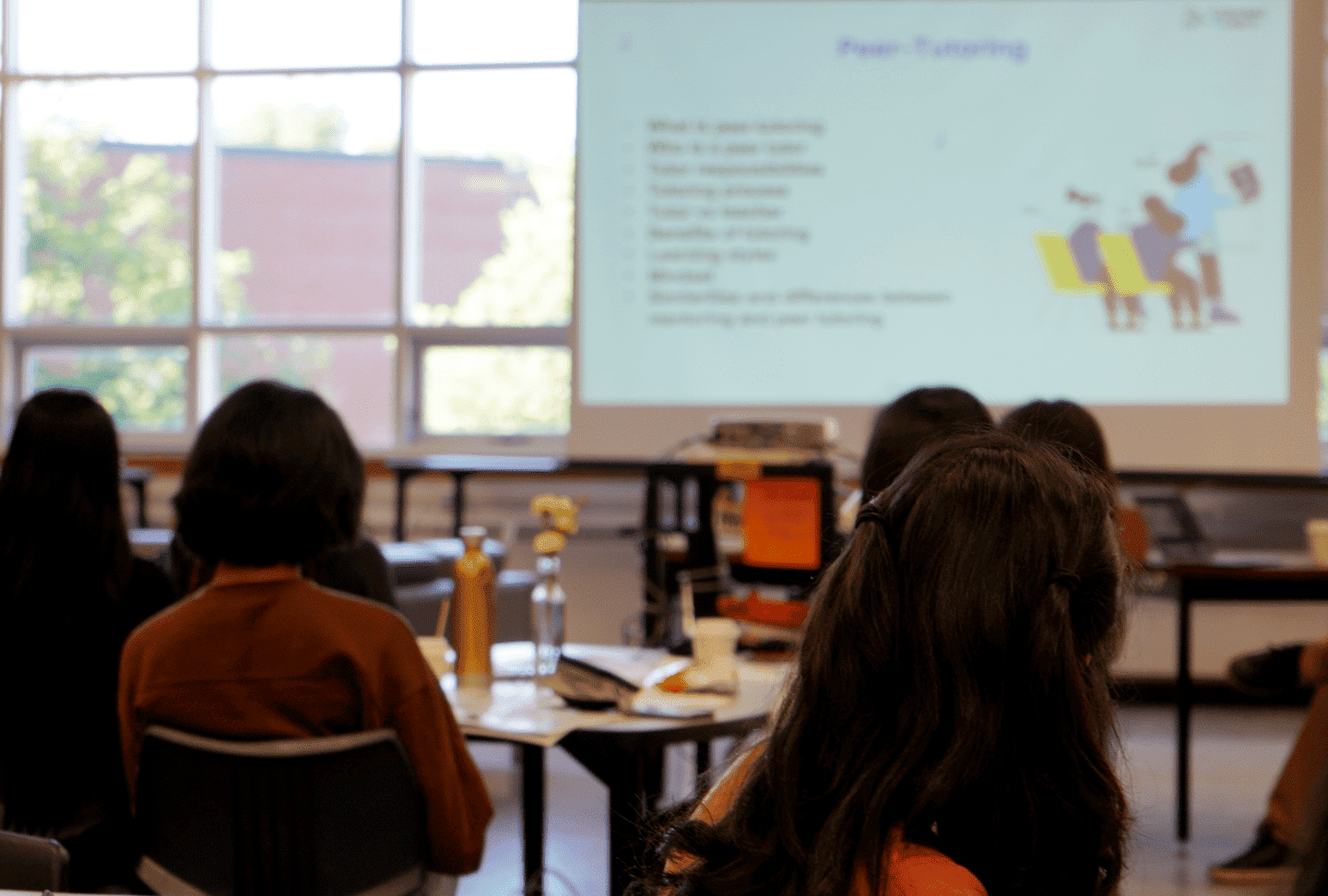
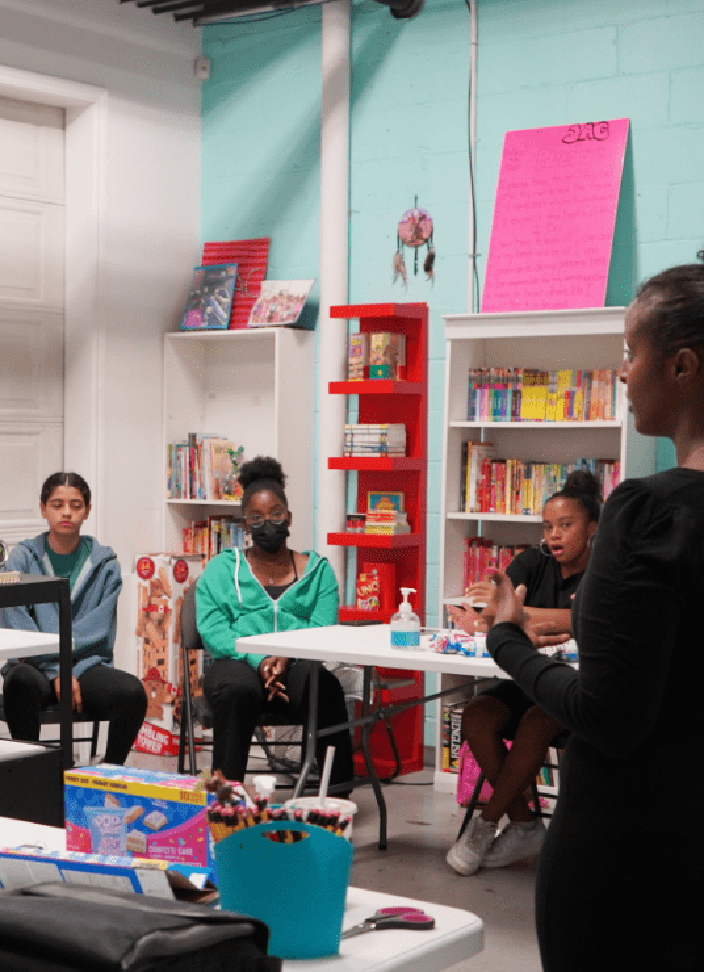
Licensed to Learn
Licensed to Learn (L2L) is a peer-tutoring and mentorship program that supports thousands of youth in schools and community agencies in boosting their academic success.
The year 2022 was an exciting year of growth for L2L. In addition to existing programs in Toronto, Edmonton and Vancouver, IDRF expanded L2L’s reach to provide free tutoring services to Halifax and Calgary!
L2L now supports 1720 students across Canada.

students supported across Canada

boys supported

girls supported
Women in Tech
IDRF also awarded full scholarships for select participants to attend an intensive 12-week Web Development Bootcamp to train them to become Full-Stack Developers. There are no tuition costs for participants in Women in Tech, thus eliminating any financial barriers to entering the course.
In 2022, IDRF trained 21 women and awarded seven women full-paid scholarships.
The program now boasts a 100% employment rate, and more than 90% of graduates secure internships, contracts and even permanent positions within 90 days of graduation.
Get Job Ready
This year, IDRF has trained 240 students in career readiness.
Upon completion of Get Job Ready, program alumni have reported the following results:
- 61.1% of participants are employed on either a full-time or part-time basis
- 88% of participants secured three or more interviews within a year of finishing Get Job Ready
- 81.4% feel they are more confident when navigating the job market

women trained

women awarded with full-paid scholarships
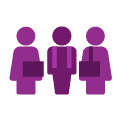
students trained in career readiness
Women in Tech
IDRF also awarded full scholarships for select participants to attend an intensive 12-week Web Development Bootcamp to train them to become Full-Stack Developers. There are no tuition costs for participants in Women in Tech, thus eliminating any financial barriers to entering the course.
In 2022, IDRF trained 21 women and awarded seven women full-paid scholarships.
The program now boasts a 100% employment rate, and more than 90% of graduates secure internships, contracts and even permanent positions within 90 days of graduation.

women trained

women awarded with full-paid scholarships
Get Job Ready
This year, IDRF has trained 240 students in career readiness.
Upon completion of Get Job Ready, program alumni have reported the following results:
- 61.1% of participants are employed on either a full-time or part-time basis
- 88% of participants secured three or more interviews within a year of finishing Get Job Ready
- 81.4% feel they are more confident when navigating the job market

students trained in career readiness

The International Development and Relief Foundation extends its deepest gratitude to our donors and volunteers whose commitment helps us provide meaningful support and opportunity for people whose lives have been disrupted by crises and conflict.
Our donors fund all of our programs, providing opportunities to change lives. Your support allows our local teams to help those in unstable and deteriorating conditions save, rebuild, and improve their lives. For over 38 years, it has been our volunteers that have helped us every step of the way, making it possible for us to serve and change people’s lives. We are so grateful to our volunteers in Vancouver, Calgary, Toronto, Ottawa, Montreal and Quebec City, for playing such a crucial role in our humanitarian work. Thank you for working to not only make an impact today but for a brighter future tomorrow!
Driven by our Mission, Inspired for the future.
Expenditure
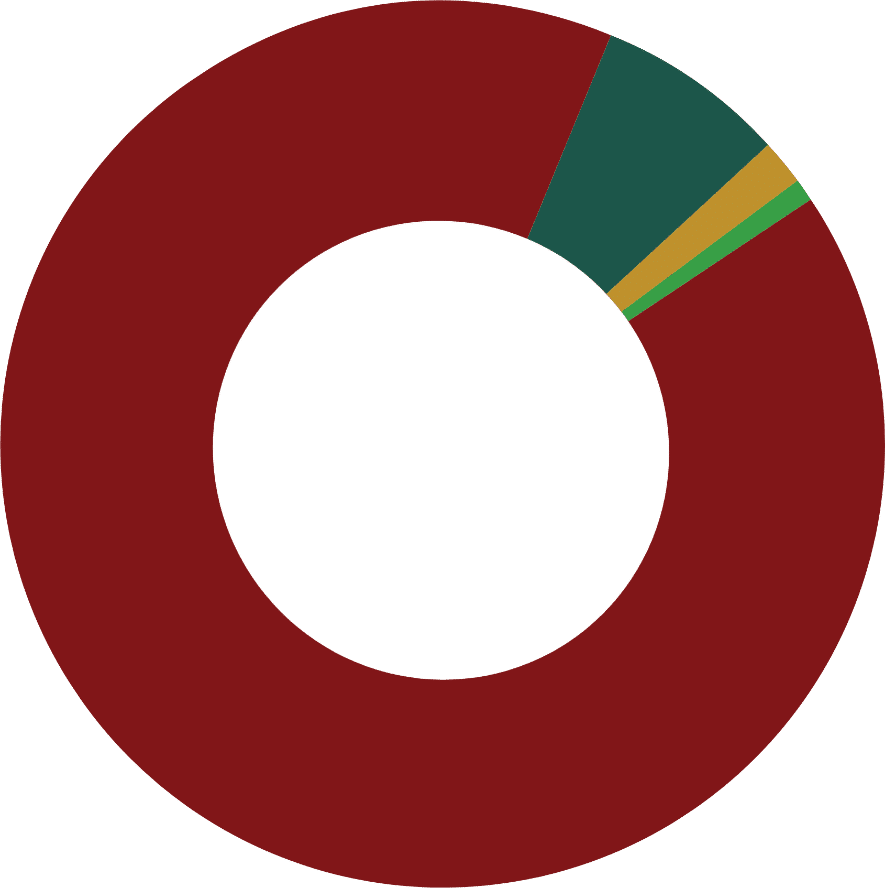
90.2%
Programs
7.8%
Fundraising
1.6%
Admin
0.4%
Other
Statement of Operations
| REVENUE | 2022 | 2021 | 2020 |
|---|---|---|---|
| Donations and fundraising events | 13,698,265 | 13,038,537 | 10,148,121 |
| Donations in kind | 3,251,501 | 1,441,207 | 1,098,345 |
| Other income | -3,033 | 37,334 | 41,605 |
| Total Revenue | 16,946,733 | 14,517,078 | 11,288,071 |
| Expenses – Program Services | |||
| International Projects | 14,371,083 | 11,249,266 | 6,357,925 |
| Food Security | 5,081,795 | 5,029,023 | 2,347,860 |
| Emergency Relief | 3,563,684 | 3,449,924 | 1,785,669 |
| Water, Sanitation & Hygiene (WASH) | 2,803,161 | 216,919 | 600,390 |
| Health | 1,554,624 | 1,798,175 | 600,390 |
| Economic Development | 525,315 | 169,305 | 300,811 |
| Education | 842,504 | 585,920 | 587,073 |
| Canadian Projects | 2,109,392 | 976,147 | 3,268,811 |
| Food Security | 631,971 | 221,161 | 164,961 |
| Emergency Relief | 979,491 | 295,955 | 375,362 |
| Health | 12,965 | 123,370 | 2,263,319 |
| Educational Development | 74,213 | 74,213 | 83,430 |
| Education | 484,965 | 335,661 | 465,169 |
| Total Expenses | 16,572,803 | 12,299,626 | 9,710,166 |
| Supporting Services | |||
| Amortization | 70,422 | 93,909 | 92,713 |
| Fundraising | 1,437,005 | 950,336 | 815,677 |
| General and administrative | 296,577 | 235,195 | 262,237 |
| Total Supporting Services | 1,804,004 | 1,279,440 | 1,170,627 |
| TOTAL | 18,376,807 | 13,579,066 | 10,880,793 |
| Excess of revenue over expenses | 1,430,074 | 938,012 | 407,278 |
Thank you to every one who has contributed over the past year.
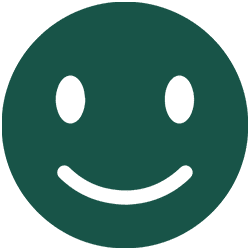
Volunteer with us
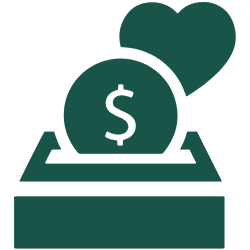
Donate
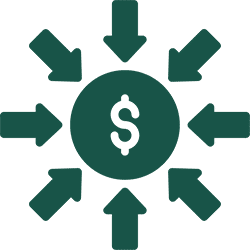

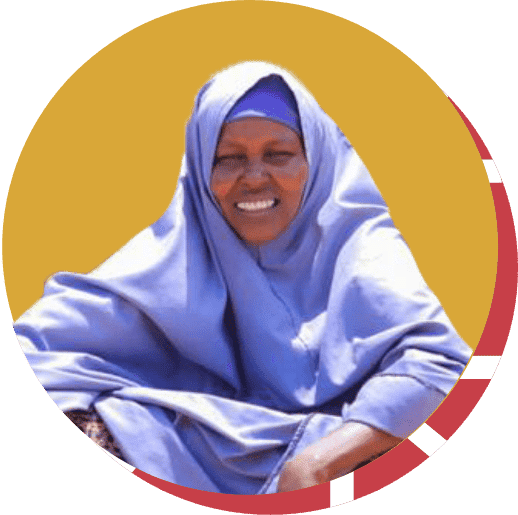

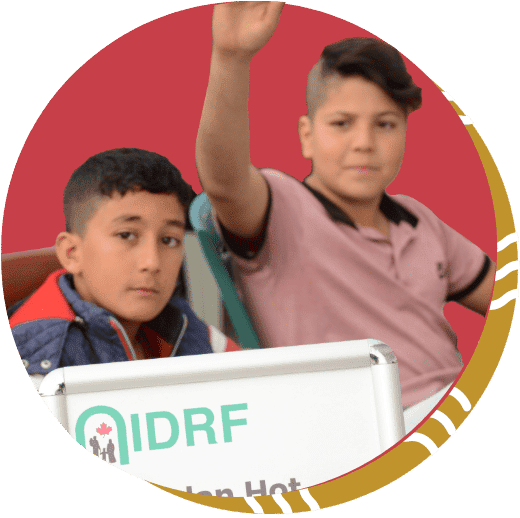

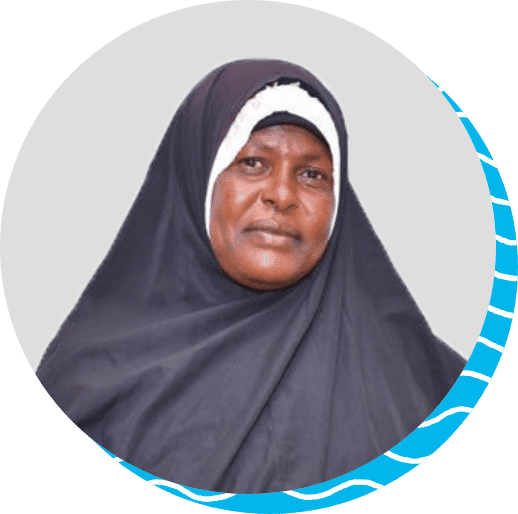

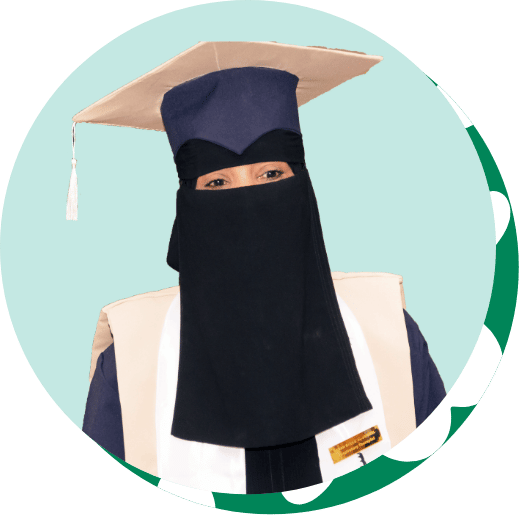

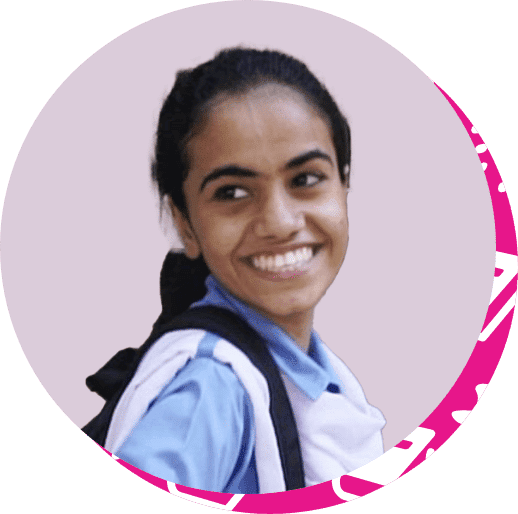


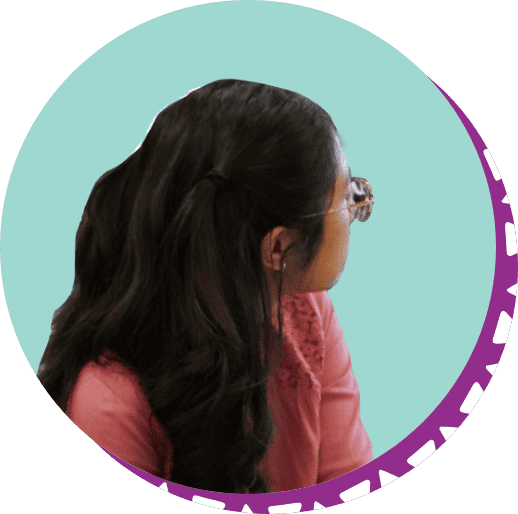

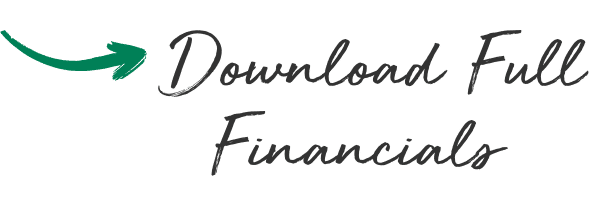





https://idrf.ca/tag/social/